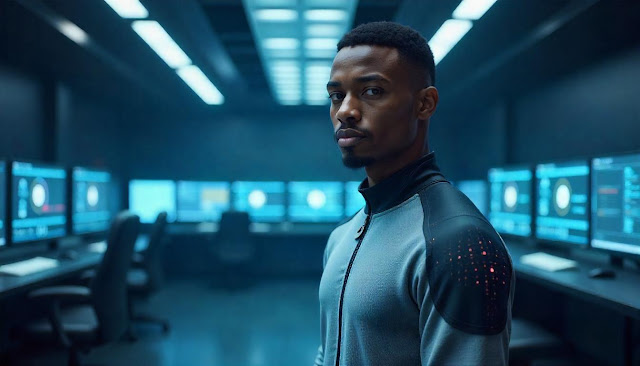The Rise of AI in Hollywood: Transforming the Film Industry
Introduction
Artificial Intelligence (AI) is revolutionizing industries worldwide, and Hollywood is no exception. From scriptwriting and visual effects to casting and marketing, AI is reshaping how films are made, distributed, and consumed. This transformation is not only enhancing creative possibilities but also redefining the role of human talent in filmmaking. In this article, we’ll explore how AI is changing the Hollywood landscape and what the future holds for AI-driven cinema.
AI in Scriptwriting: Automating Creativity?
One of the most controversial yet fascinating applications of AI in Hollywood is scriptwriting. AI-powered tools like OpenAI’s ChatGPT and Sudowrite can generate screenplays, assist in dialogue refinement, and even suggest plot structures based on data-driven analysis.
Speed and Efficiency: AI can analyze thousands of successful scripts and generate story outlines within minutes, helping writers refine their narratives.
Personalized Content: Streaming giants like Netflix and Disney use AI to predict audience preferences, influencing the types of scripts that get greenlit.
Challenges: While AI can assist in scriptwriting, human creativity remains irreplaceable. AI-generated scripts often lack emotional depth and originality.
AI-Driven Visual Effects and CGI
AI has dramatically improved the quality and efficiency of visual effects (VFX), making blockbuster films more immersive and cost-effective.
Deepfake Technology: AI can digitally de-age actors or resurrect past performers, as seen in The Mandalorian with a young Luke Skywalker.
AI-Enhanced Animation: Studios like Pixar and DreamWorks use AI to streamline animation workflows, reducing production time and costs.
Realistic CGI: AI-driven deep learning can generate hyper-realistic environments and characters, pushing the boundaries of visual storytelling.
Casting and Performance Enhancement
AI is playing an increasingly prominent role in casting decisions and even actor performance enhancement.
AI-Powered Casting: Studios use AI to analyze audience reactions and predict an actor’s suitability for a role based on their past performances.
Digital Avatars: AI can create hyper-realistic digital doubles, allowing actors to perform without physically being on set. This has major implications for stunt work and posthumous performances.
Voice and Facial Recognition: AI can replicate an actor’s voice and facial expressions, making dubbing and localization more seamless than ever before.
AI in Film Marketing and Distribution
AI has transformed how movies are marketed and distributed, optimizing promotional strategies to maximize audience engagement.
Predictive Analytics: AI analyzes market trends, social media engagement, and historical box office data to predict a film’s success.
Personalized Trailers: AI-generated trailers can be customized to cater to different audience demographics, enhancing promotional effectiveness.
Automated Social Media Marketing: AI tools manage social media campaigns, tailoring content for various platforms and maximizing reach.
The Ethical Debate: AI vs. Human Creativity
While AI offers numerous advantages, its growing presence in Hollywood raises ethical concerns.
Job Displacement: As AI automates tasks, there’s fear that traditional jobs in scriptwriting, VFX, and marketing could be reduced.
Authenticity Concerns: AI-generated performances blur the line between real and synthetic, sparking debates on artistic integrity.
Intellectual Property Issues: Who owns AI-generated content? This question remains a major legal and ethical challenge.
The Future of AI in Hollywood
The rise of AI in Hollywood signals a new era of filmmaking. While AI will continue to play a crucial role in film production, it is unlikely to replace human creativity altogether. Instead, AI serves as a powerful tool that enhances efficiency, creativity, and audience engagement.
As technology advances, the collaboration between AI and human filmmakers will shape the future of cinema, offering new storytelling possibilities while preserving the artistic essence of Hollywood.
More about films:




.jpg)

.jpg)
Comments
Post a Comment